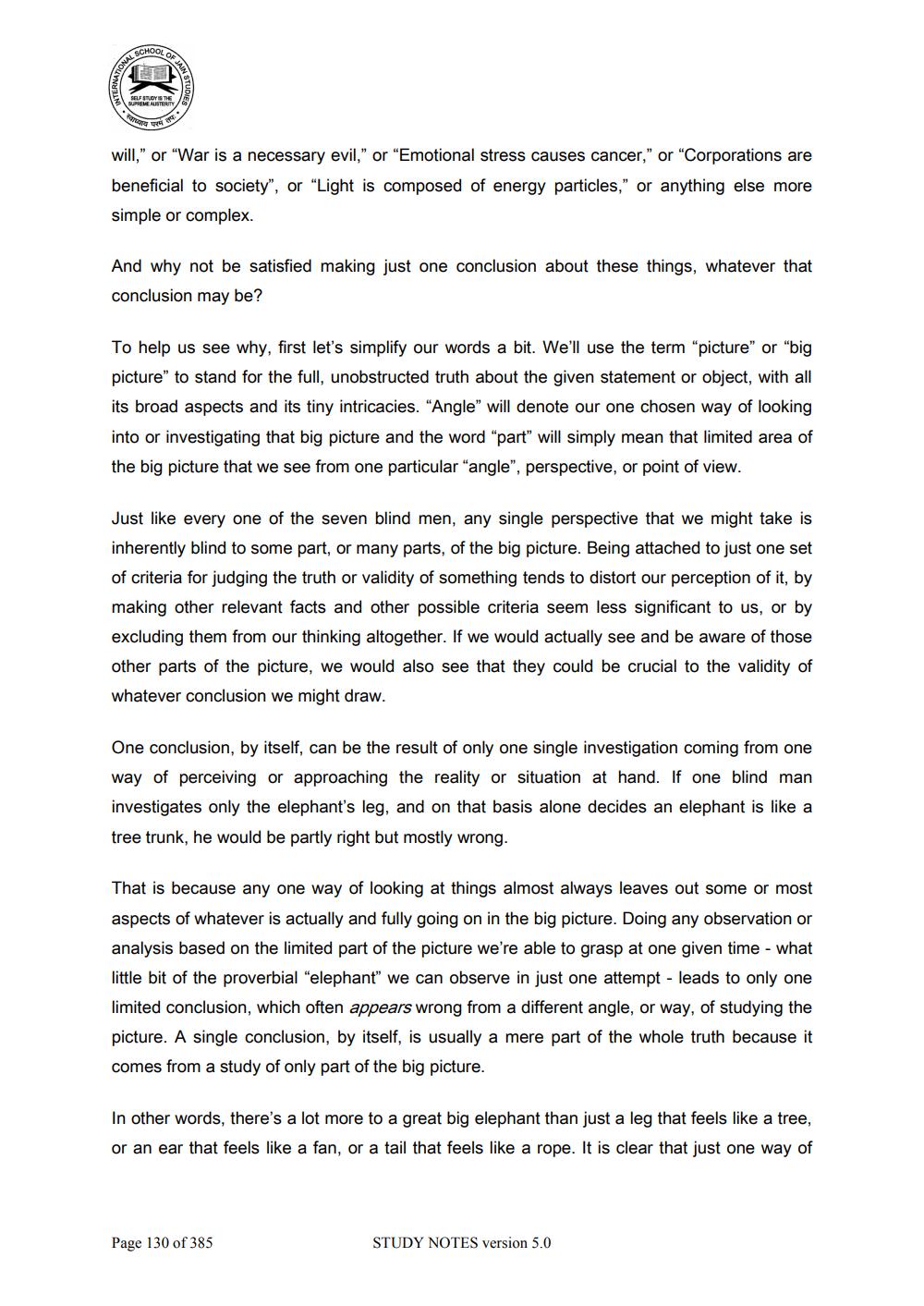________________
will," or "War is a necessary evil," or "Emotional stress causes cancer," or "Corporations are beneficial to society", or "Light is composed of energy particles," or anything else more simple or complex.
And why not be satisfied making just one conclusion about these things, whatever that conclusion may be?
To help us see why, first let's simplify our words a bit. We'll use the term "picture" or "big picture" to stand for the full, unobstructed truth about the given statement or object, with all its broad aspects and its tiny intricacies. “Angle" will denote our one chosen way of looking into or investigating that big picture and the word "part" will simply mean that limited area of the big picture that we see from one particular "angle", perspective, or point of view.
Just like every one of the seven blind men, any single perspective that we might take is inherently blind to some part, or many parts, of the big picture. Being attached to just one set of criteria for judging the truth or validity of something tends to distort our perception of it, by making other relevant facts and other possible criteria seem less significant to us, or by excluding them from our thinking altogether. If we would actually see and be aware of those other parts of the picture, we would also see that they could be crucial to the validity of whatever conclusion we might draw.
One conclusion, by itself, can be the result of only one single investigation coming from one way of perceiving or approaching the reality or situation at hand. If one blind man investigates only the elephant's leg, and on that basis alone decides an elephant is like a tree trunk, he would be partly right but mostly wrong.
That is because any one way of looking at things almost always leaves out some or most aspects of whatever is actually and fully going on in the big picture. Doing any observation or analysis based on the limited part of the picture we're able to grasp at one given time - what little bit of the proverbial "elephant" we can observe in just one attempt - leads to only one limited conclusion, which often appears wrong from a different angle, or way, of studying the picture. A single conclusion, by itself, is usually a mere part of the whole truth because it comes from a study of only part of the big picture.
In other words, there's a lot more to a great big elephant than just a leg that feels like a tree, or an ear that feels like a fan, or a tail that feels like a rope. It is clear that just one way of
Page 130 of 385
STUDY NOTES version 5.0




